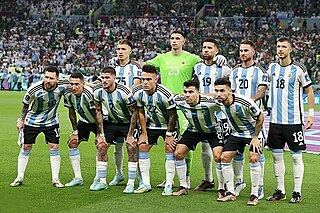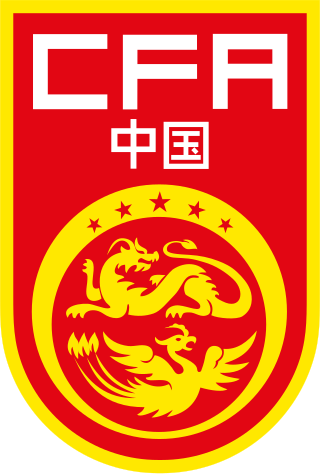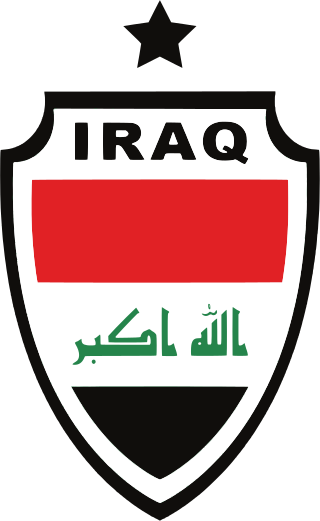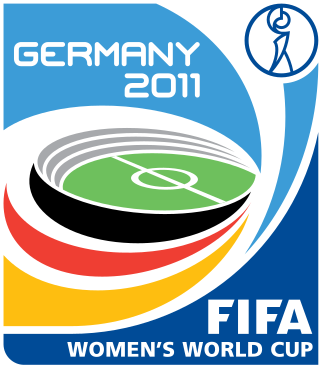Schedule
- Key
- H = Home match
- A = Away match
- N = Neutral venue
This page records the details of the Japan national football team in 2005. [1]
| Player | -2004 | 01.29 | 02.02 | 02.09 | 03.25 | 03.30 | 05.22 | 05.27 | 06.03 | 06.08 | 06.16 | 06.19 | 06.22 | 07.31 | 08.03 | 08.07 | 08.17 | 09.07 | 10.08 | 10.12 | 11.16 | 2005 | Total |
| Yoshikatsu Kawaguchi | 65(0) | O | O | O | - | - | O | O | O | O | O | O | O | O | - | - | O | - | - | O | O | 14(0) | 79(0) |
| Hidetoshi Nakata | 61(10) | - | - | - | O | O | - | - | O | - | O | O | O | - | - | - | - | O | O | O | O | 10(0) | 71(10) |
| Junichi Inamoto | 51(4) | - | - | - | - | O | O | O | O | O | O | - | - | - | - | - | - | O | O | O | O | 10(0) | 61(4) |
| Shunsuke Nakamura | 46(12) | - | - | O | O | O | - | - | O | - | O | O | O(1) | - | - | - | - | O(1) | O(1) | O | O | 11(3) | 57(15) |
| Alessandro Santos | 46(4) | O(1) | O | O | - | O | O | O | O | - | O | O | O | O | O | - | O | O | O | O | O | 17(1) | 63(5) |
| Koji Nakata | 46(2) | - | O | - | - | - | - | - | O | O | - | O | O | - | - | - | - | O | O | O | - | 8(0) | 54(2) |
| Seigo Narazaki | 46(0) | - | - | - | O | O | - | - | - | - | - | - | - | - | O | - | - | O | - | - | - | 4(0) | 50(0) |
| Takayuki Suzuki | 45(10) | O | O(1) | O | - | O | O | O | - | O | - | - | O | - | - | - | - | - | O | O | - | 10(1) | 55(11) |
| Tsuneyasu Miyamoto | 45(2) | - | O(1) | O | O | O | O | O | O | O | O | O | O | O | - | - | O | O | - | - | O | 15(1) | 60(3) |
| Atsushi Yanagisawa | 44(13) | - | - | - | O | - | - | - | O | O(1) | O(1) | O | O | - | - | - | - | O(2) | O | O | O | 10(4) | 54(17) |
| Shinji Ono | 44(5) | - | - | - | O | - | - | O | - | - | - | - | - | - | - | - | - | - | - | - | - | 2(0) | 46(5) |
| Takashi Fukunishi | 39(5) | O | O | O | O(1) | O | O | O | O | O | O | O | O | O | - | - | O | - | - | - | - | 14(1) | 53(6) |
| Naoki Matsuda | 39(0) | O(1) | - | - | - | - | - | - | - | - | - | - | - | - | - | - | - | - | - | - | - | 1(1) | 40(1) |
| Naohiro Takahara | 32(12) | - | - | O | O | O | - | - | - | - | - | - | - | - | - | - | - | O(1) | O(1) | O | O | 7(2) | 39(14) |
| Yuji Nakazawa | 29(7) | O | O | O | O | O | - | - | O | O | - | - | - | O | - | O(1) | O | O | - | - | O | 12(1) | 41(8) |
| Yasuhito Endo | 28(3) | O | O | O | - | - | O | - | - | O | - | O | - | O | - | - | O | - | - | - | - | 8(0) | 36(3) |
| Mitsuo Ogasawara | 28(2) | O | O(1) | O(1) | O | - | O | O | O(1) | O | O | O | O | O | - | O | O | O(1) | - | - | - | 15(4) | 43(6) |
| Toshiya Fujita | 23(3) | O | - | - | - | - | - | - | - | - | - | - | - | - | - | - | - | - | - | - | - | 1(0) | 24(3) |
| Atsuhiro Miura | 23(1) | - | - | - | O | - | O | - | - | - | - | - | - | - | - | - | - | - | - | - | - | 2(0) | 25(1) |
| Akira Kaji | 21(0) | O | O | O | O | O | - | O | O | O | O | O | O | O | - | - | O(1) | O | - | - | - | 14(1) | 35(1) |
| Keisuke Tsuboi | 21(0) | O | - | - | - | - | O | O | - | - | - | - | - | - | O | O | - | - | O | O | - | 7(0) | 28(0) |
| Keiji Tamada | 18(5) | O(2) | O | O | O | O | O | O | O | - | O | O | O | O | O | O | O | O | - | - | - | 16(2) | 34(7) |
| Masashi Motoyama | 18(0) | O | O | - | - | - | O | O | - | - | - | - | - | O | O | O | - | - | O | - | - | 8(0) | 26(0) |
| Yoshito Okubo | 17(0) | - | - | - | - | - | - | - | - | - | - | - | - | - | - | - | - | - | O | O | - | 2(0) | 19(0) |
| Makoto Tanaka | 14(0) | O | O | O | - | O | O | O | O | O | O | O | O | O | - | - | O | O | O | - | O | 16(0) | 30(0) |
| Teruyuki Moniwa | 3(0) | - | - | - | - | - | - | - | - | - | - | - | - | - | O(1) | O | - | - | O | O | - | 4(1) | 7(1) |
| Takayuki Chano | 3(0) | - | - | - | - | - | - | O | - | - | O | - | - | - | O | O | - | - | - | - | - | 4(0) | 7(0) |
| Yoichi Doi | 2(0) | - | - | - | - | - | - | - | - | - | - | - | - | - | - | O | - | - | O | - | - | 2(0) | 4(0) |
| Daisuke Matsui | 1(0) | - | - | - | - | - | - | - | - | - | - | - | - | - | - | - | - | - | O | O | O(1) | 3(1) | 4(1) |
| Masashi Oguro | 0(0) | O | - | O(1) | O | - | O | O | - | O(1) | O | O(1) | O(1) | O | O | O | O(1) | O | - | - | O | 15(5) | 15(5) |
| Yuki Abe | 0(0) | O | - | - | - | - | - | - | - | - | - | - | - | - | O | O | O | - | - | - | O | 5(0) | 5(0) |
| Yuichi Komano | 0(0) | - | - | - | - | - | - | - | - | - | - | - | - | - | O | O | - | - | O | O | O | 5(0) | 5(0) |
| Seiichiro Maki | 0(0) | - | - | - | - | - | - | - | - | - | - | - | - | O | O | O | - | - | - | - | - | 3(0) | 3(0) |
| Yasuyuki Konno | 0(0) | - | - | - | - | - | - | - | - | - | - | - | - | - | O | O | O | - | - | - | - | 3(0) | 3(0) |
| Shinji Murai | 0(0) | - | - | - | - | - | - | - | - | - | - | - | - | - | O | O | - | - | - | O | - | 3(0) | 3(0) |
| Tatsuya Tanaka | 0(0) | - | - | - | - | - | - | - | - | - | - | - | - | O | O(1) | - | - | - | - | - | - | 2(1) | 2(1) |
| Yoshinobu Minowa | 0(0) | - | - | - | - | - | - | - | - | - | - | - | - | - | - | - | - | - | - | O | - | 1(0) | 1(0) |
| Rank | Name | Position | Goals |
|---|---|---|---|
| 1 | Masashi Oguro | FW | 4 |
| Atsushi Yanagisawa | FW | ||
| Mitsuo Ogasawara | MF | ||
| 4 | Shunsuke Nakamura | MF | 3 |
| 5 | Naohiro Takahara | FW | 2 |
| Keiji Tamada | FW | ||
| Yuji Nakazawa | DF |
Japan 1st Kit | Japan 1st Alt. | Japan 2nd Kit | 2006 Japan 1st Kit |

The FIFA World Cup, often simply called the World Cup, is an international association football competition among the senior men's national teams of the members of the Fédération Internationale de Football Association (FIFA), the sport's global governing body. The tournament has been held every four years since the inaugural tournament in 1930, with the exception of 1942 and 1946 due to the Second World War. The reigning champions are Argentina, who won their third title at the 2022 tournament.

The 2002 FIFA World Cup, also branded as Korea Japan 2002, was the 17th FIFA World Cup, the quadrennial football world championship for men's national teams organized by FIFA. It was held from 31 May to 30 June 2002 at sites in South Korea and Japan, with its final match hosted by Japan at International Stadium in Yokohama. During the opening ceremony, the championship was declared opened by President of South Korea Kim Dae-jung.

Sports in Japan are a significant part of Japanese culture. Both traditional sports such as sumo and martial arts, and Western imports like baseball, association football, basketball and tennis are popular with both participants and spectators.

The FIFA Women's World Cup is an international association football competition contested by the senior women's national teams of the members of Fédération Internationale de Football Association (FIFA), the sport's international governing body. The competition has been held every four years and one year after the men's FIFA World Cup since 1991, when the inaugural tournament, then called the FIFA Women's World Championship, was held in China. Under the tournament's current format, national teams vie for the remaining 31 slots in a three-year qualification phase. The host nation's team is automatically entered as the first slot. The tournament, called the World Cup Finals, is contested at venues within the host nation(s) over about one month.

The China national football team represents the People's Republic of China in international association football and is governed by the Chinese Football Association.

The Japan national football team, also known by the nickname Samurai Blue, represents Japan in men's international football. It is controlled by the Japan Football Association (JFA), the governing body for football in Japan.

The South Korea national football team represents South Korea in men's international football and is governed by the Korea Football Association. South Korea has emerged as a major football power in Asia since the 1980s, having participated in ten consecutive and eleven overall FIFA World Cup tournaments, the most for any Asian country. Despite initially going through five World Cup tournaments without winning a match, South Korea became the first Asian team to reach the semi-finals when they co-hosted the 2002 tournament with Japan. South Korea also won two AFC Asian Cup titles, and finished as runners-up on four occasions. Furthermore, the team won three gold medals and three silver medals at the senior Asian Games.

The Iraq national football team represents Iraq in international football and is controlled by the Iraq Football Association (IFA), the governing body for football in Iraq. Iraq's usual home venue is the Basra International Stadium.

The North Korea national football team represents North Korea in men's international football and it is controlled by the DPR Korea Football Association, the governing body for Football in North Korea. The team represents both FIFA and Asian Football Confederation (AFC).

The Jordan national football team represents Jordan in international football and is controlled by the Jordan Football Association. Jordan have never qualified for the World Cup finals but have appeared five times in the Asian Cup and reached the final match of a major tournament for the first time in the 2023 edition, finishing as runners-up for the first time.
The Bahrain national football team represents Bahrain in international football and is controlled by the Bahrain Football Association, which was founded in 1951 and joined FIFA in 1966. They have never reached the World Cup, but have twice come within one match of doing so. Bahrain won the FIFA's most improved team award in 2004, and finished fourth in the 2004 Asian Cup, beating Uzbekistan in the quarter-finals but losing to Japan in the semi-finals 4–3. Bahrain then lost to Iran in the third-place match, thus finishing in fourth place overall. Bahrain had a golden year in 2019, winning both the WAFF Championship and the Arabian Gulf Cup for the first time, under the stewardship of Hélio Sousa.

The Qatar national football team nicknamed The Maroons, represents Qatar in international football, and is controlled by the Qatar Football Association and AFC. They play their home games at Khalifa International Stadium and Jassim Bin Hamad Stadium. The latter is considered the home stadium. Qatar is a member of both the FIFA and the Asian Football Confederation (AFC).

The Sweden women's national football team, nicknamed Blågult, represents Sweden at international women's association football competitions. It was established in 1973 and is governed by the Swedish Football Association.

The 2011 FIFA Women's World Cup was the sixth FIFA Women's World Cup competition, the world championship for women's national football teams. It was held from 26 June to 17 July 2011 in Germany, which won the right to host the event in October 2007. Japan won the final against the United States on a penalty shoot-out following a 2–2 draw after extra time and became the first Asian team to win a senior FIFA World Cup.
The Japan women's national football team, commonly known as Nadeshiko Japan (なでしこジャパン), represents Japan in women's association football and is run by the Japan Football Association (JFA). The only country to win every FIFA competition and the most successful women's national team in the Asian Football Confederation, its highest ranking in the FIFA Women's World Rankings is 3rd, achieved in December 2011.
The Kirin Cup Soccer is an association football tournament organised in Japan by the Kirin Brewery Company. The host, Japan, is a participant in every edition. The tournament was founded in 1978 then known as Japan Cup, and was last held in its full form in 2022.
This page indexes the individual year in association football pages. Each year is annotated with one or more significant events as a reference point.

The Switzerland women's national football team represents Switzerland in international women's football.

The Thailand national futsal team represents Thailand in international futsal competitions and is controlled by the Football Association of Thailand.
The Jordan women's national football team is the official women's national football team of the country of Jordan. The team was established in 2005, and is controlled by the Jordan Football Association (JFA), the governing body for football in Jordan.